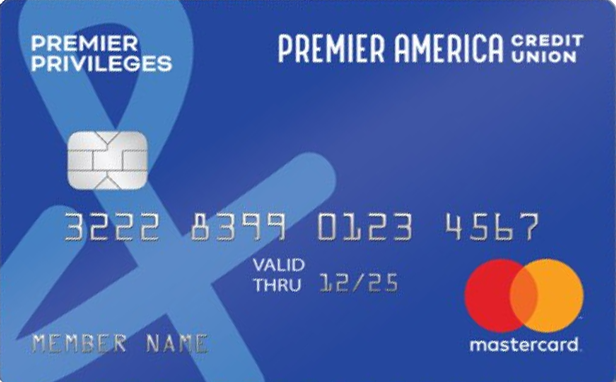- myFICO® Forums
- Types of Credit
- Credit Cards
- Re: Question about the Chase CSR?
- Subscribe to RSS Feed
- Mark Topic as New
- Mark Topic as Read
- Float this Topic for Current User
- Bookmark
- Subscribe
- Mute
- Printer Friendly Page
Question about the Chase CSR?
Is your credit card giving you the perks you want?
Browse credit cards from a variety of issuers to see if there's a better card for you.
- Mark as New
- Bookmark
- Subscribe
- Mute
- Subscribe to RSS Feed
- Permalink
- Report Inappropriate Content
Question about the Chase CSR?
A question about the Chase CSR: in another thread, one poster very helpfully mentioned that after the $300 annual travel credit is applied, the CSR essentially becomes a $150 AF card, rather than a card with a $450 AF. My question though is, isn't the $300 you have to get the travel credit money you would have had to pay for travel expenses anyway? And so I don't quite understand how is that better than paying the $300 travel expenses on another card or in cash? Sorry I don't mean to ask a dumb or a snarky question here, honestly j/c how an expense you would have had to pay for even without the CSR helps the CSR's AF worthwhile or break even?




































- Mark as New
- Bookmark
- Subscribe
- Mute
- Subscribe to RSS Feed
- Permalink
- Report Inappropriate Content
Re: Question about the Chase CSR?
@galahad15 wrote:A question about the Chase CSR: in another thread, one poster very helpfully mentioned that after the $300 annual travel credit is applied, the CSR essentially becomes a $150 AF card, rather than a card with a $450 AF. My question though is, isn't the $300 you have to get the travel credit money you would have had to pay for travel expenses anyway? And so I don't quite understand how is that better than paying the $300 travel expenses on another card or in cash? Sorry I don't mean to ask a dumb or a snarky question here, honestly j/c how an expense you would have had to pay for even without the CSR helps the CSR's AF worthwhile or break even?
Don't really understand the confusion!
I need to make a trip that costs say $500. If I charge that to the CSR, the total cost, ignoring rewards, and including the AF is $950-300 = $650
If I put the charge on my no-AF card, the cost is $500
So the difference is $150, the effective AF for the CSR, and I then get to decide if the benefits are worth this $150.
Now if you don't do any travel, then yes, the AF is $450
- Mark as New
- Bookmark
- Subscribe
- Mute
- Subscribe to RSS Feed
- Permalink
- Report Inappropriate Content
Re: Question about the Chase CSR?
Agreed. Its a travel card. When you travel that 300 offsets costs incurred, which means the 450 annual fee includes a 300 dollar coupon to do what you want with. Now with that said, if you dont travel at least occasionally, you would be better off with a CSP or a standard 1.5 or 2% cash back card in my opinion.
FICO scores TU 764 EX 739 EQ 745
- Mark as New
- Bookmark
- Subscribe
- Mute
- Subscribe to RSS Feed
- Permalink
- Report Inappropriate Content
Re: Question about the Chase CSR?
@galahad15 wrote:A question about the Chase CSR: in another thread, one poster very helpfully mentioned that after the $300 annual travel credit is applied, the CSR essentially becomes a $150 AF card, rather than a card with a $450 AF. My question though is, isn't the $300 you have to get the travel credit money you would have had to pay for travel expenses anyway? And so I don't quite understand how is that better than paying the $300 travel expenses on another card or in cash? Sorry I don't mean to ask a dumb or a snarky question here, honestly j/c how an expense you would have had to pay for even without the CSR helps the CSR's AF worthwhile or break even?
Another way to look at it...
- You spent $500 on a plane ticket and that's the only thing you put on your card for the month (for simplicity sake). Chase automatically credits your account $300 so your ending balance for the month is only $200, "saving" you $300 on your plane ticket
- You take that $300 that you "saved" and put it toward the $450 annual fee and your only Out of Pocket cost for the annual fee is $150.
As the above poster mentioned, if you do not spend $300 in travel for the entire year, then you never get the $300 credit and are Out of Pocket the whole $450.
- Mark as New
- Bookmark
- Subscribe
- Mute
- Subscribe to RSS Feed
- Permalink
- Report Inappropriate Content
Re: Question about the Chase CSR?
@Anonymous wrote:
@galahad15 wrote:A question about the Chase CSR: in another thread, one poster very helpfully mentioned that after the $300 annual travel credit is applied, the CSR essentially becomes a $150 AF card, rather than a card with a $450 AF. My question though is, isn't the $300 you have to get the travel credit money you would have had to pay for travel expenses anyway? And so I don't quite understand how is that better than paying the $300 travel expenses on another card or in cash? Sorry I don't mean to ask a dumb or a snarky question here, honestly j/c how an expense you would have had to pay for even without the CSR helps the CSR's AF worthwhile or break even?
Don't really understand the confusion!
I need to make a trip that costs say $500. If I charge that to the CSR, the total cost, ignoring rewards, and including the AF is $950-300 = $650
If I put the charge on my no-AF card, the cost is $500
So the difference is $150, the effective AF for the CSR, and I then get to decide if the benefits are worth this $150.
Now if you don't do any travel, then yes, the AF is $450
Thanks for the very helpful info longtimelurker and also to other posters who answered as well, I appreciate it! ![]() The CSR's web page mentions that the CSR's $300 travel credit applies "as reimbursement for travel purchases such as airfare and hotels charged to your card". Does anyone know if trains and/or local subways are included as eligible travel purchases, in addition to airfare and hotels?
The CSR's web page mentions that the CSR's $300 travel credit applies "as reimbursement for travel purchases such as airfare and hotels charged to your card". Does anyone know if trains and/or local subways are included as eligible travel purchases, in addition to airfare and hotels?




































- Mark as New
- Bookmark
- Subscribe
- Mute
- Subscribe to RSS Feed
- Permalink
- Report Inappropriate Content
Re: Question about the Chase CSR?
It "should" be but i haven't yet tried it before. When i had my CSP trains subways taxis were covered under bonus points for travel, i would assume CSR would be the same. Chase usually has broad categories for travel, FWIW when i pay for parking it reimbursed with my 300 dollar travel credit with CSR.

EX Fico 804 11/16/16 Fako 800 Credit.com 11/16/16
EQ SW bank enhanced 11/16/16 839 CK fako 822 11/16/16
TU Fico discover 10/19/16 814 Fako 819 Creditkarma 11/16/16
- Mark as New
- Bookmark
- Subscribe
- Mute
- Subscribe to RSS Feed
- Permalink
- Report Inappropriate Content
Re: Question about the Chase CSR?
Thanks for the very helpful info longtimelurker and also to other posters who answered as well, I appreciate it!
The CSR's web page mentions that the CSR's $300 travel credit applies "as reimbursement for travel purchases such as airfare and hotels charged to your card". Does anyone know if trains and/or local subways are included as eligible travel purchases, in addition to airfare and hotels?
From the Chase website:
Q. What types of merchants are in the 'travel' category?
A. Merchants in the travel category include airlines, hotels, motels, timeshares, car rental agencies, cruise lines, travel agencies, discount travel sites, campgrounds and operators of passenger trains, buses, taxis, limousines, ferries, toll bridges and highways, and parking lots and garages. Please note that some merchants that provide transportation and travel-related services are not included in this category; for example, real estate agents, in-flight goods and services, on-board cruise line goods and services, sightseeing activities, excursions, tourist attractions, merchants within hotels and airports, and merchants that rent vehicles for the purpose of hauling.
- Mark as New
- Bookmark
- Subscribe
- Mute
- Subscribe to RSS Feed
- Permalink
- Report Inappropriate Content
Re: Question about the Chase CSR?
Thank you Abby and mongstradamus!




































- Mark as New
- Bookmark
- Subscribe
- Mute
- Subscribe to RSS Feed
- Permalink
- Report Inappropriate Content
Re: Question about the Chase CSR?
@Anonymous wrote:Thanks for the very helpful info longtimelurker and also to other posters who answered as well, I appreciate it!
The CSR's web page mentions that the CSR's $300 travel credit applies "as reimbursement for travel purchases such as airfare and hotels charged to your card". Does anyone know if trains and/or local subways are included as eligible travel purchases, in addition to airfare and hotels?
From the Chase website:
Q. What types of merchants are in the 'travel' category?
A. Merchants in the travel category include airlines, hotels, motels, timeshares, car rental agencies, cruise lines, travel agencies, discount travel sites, campgrounds and operators of passenger trains, buses, taxis, limousines, ferries, toll bridges and highways, and parking lots and garages. Please note that some merchants that provide transportation and travel-related services are not included in this category; for example, real estate agents, in-flight goods and services, on-board cruise line goods and services, sightseeing activities, excursions, tourist attractions, merchants within hotels and airports, and merchants that rent vehicles for the purpose of hauling.
I got toll fees and some parking fees as travel expenses for my first $300. The fee reset with the statement in early December.
I just found out that the San Antonio, TX airport parking is coded differently, so is only 1x and not counted in the $300.
- Mark as New
- Bookmark
- Subscribe
- Mute
- Subscribe to RSS Feed
- Permalink
- Report Inappropriate Content
Re: Question about the Chase CSR?
Because of my lack of major travelling (1-3 times a year max), a $450 AF travel card just wouldn't make any sense for me!